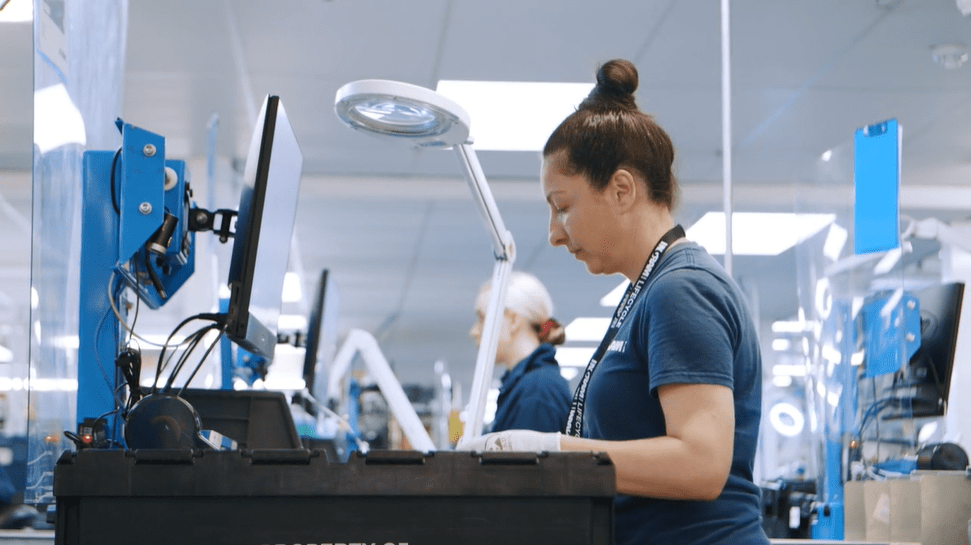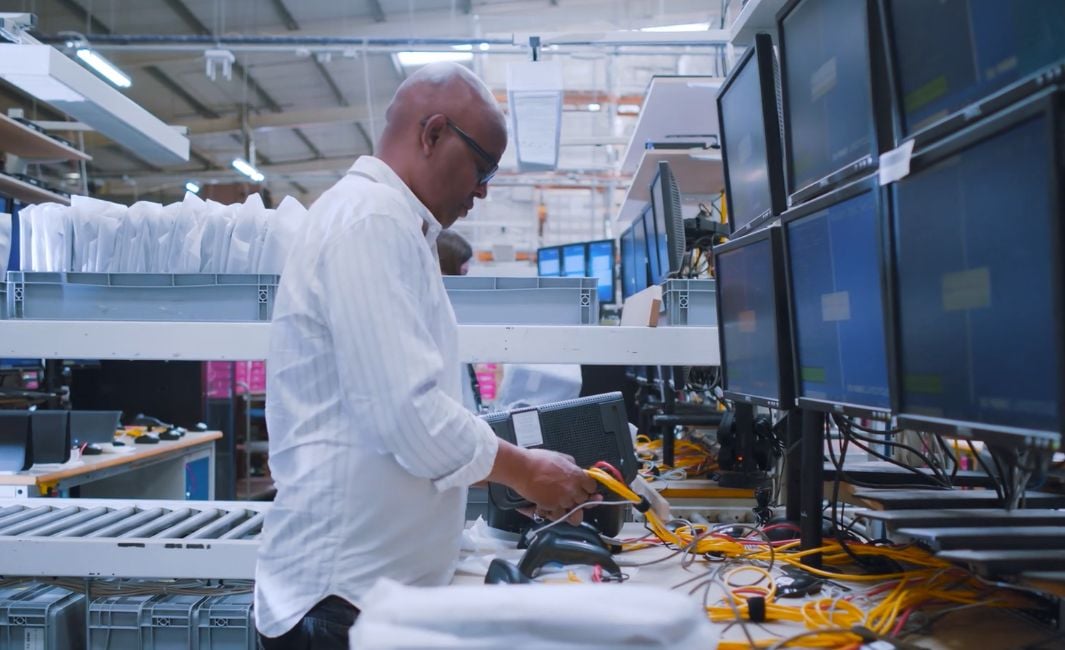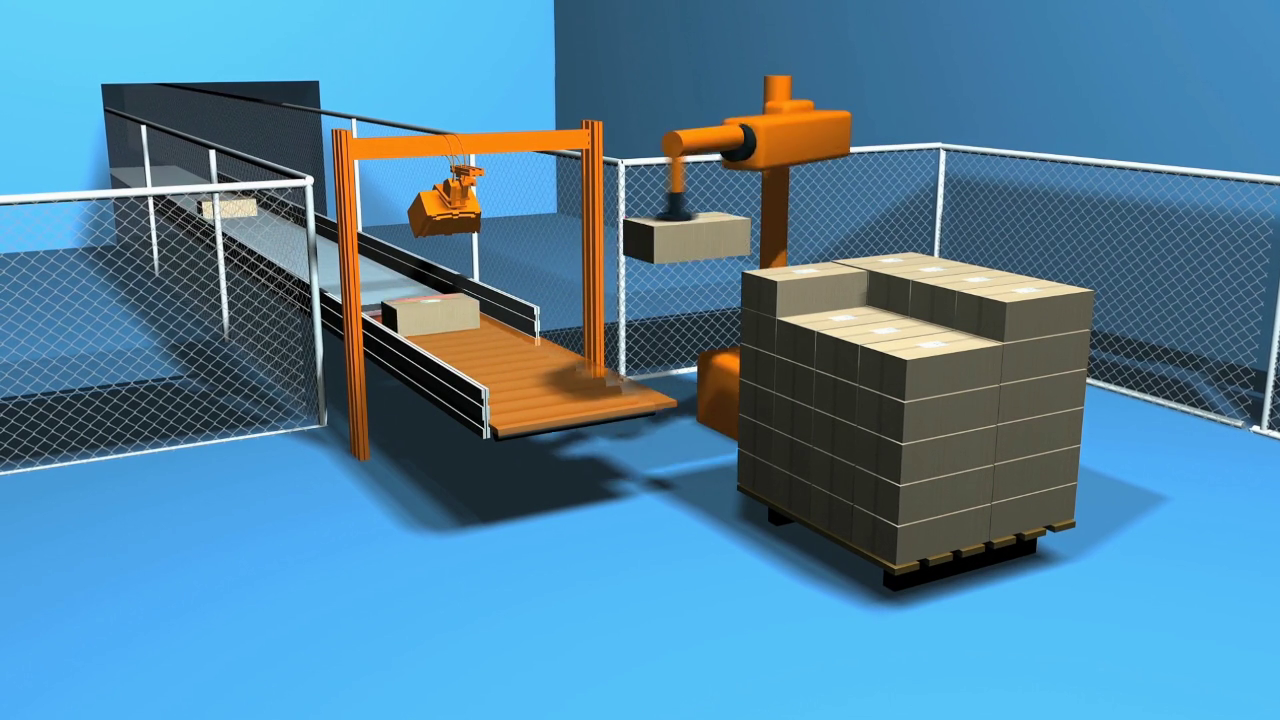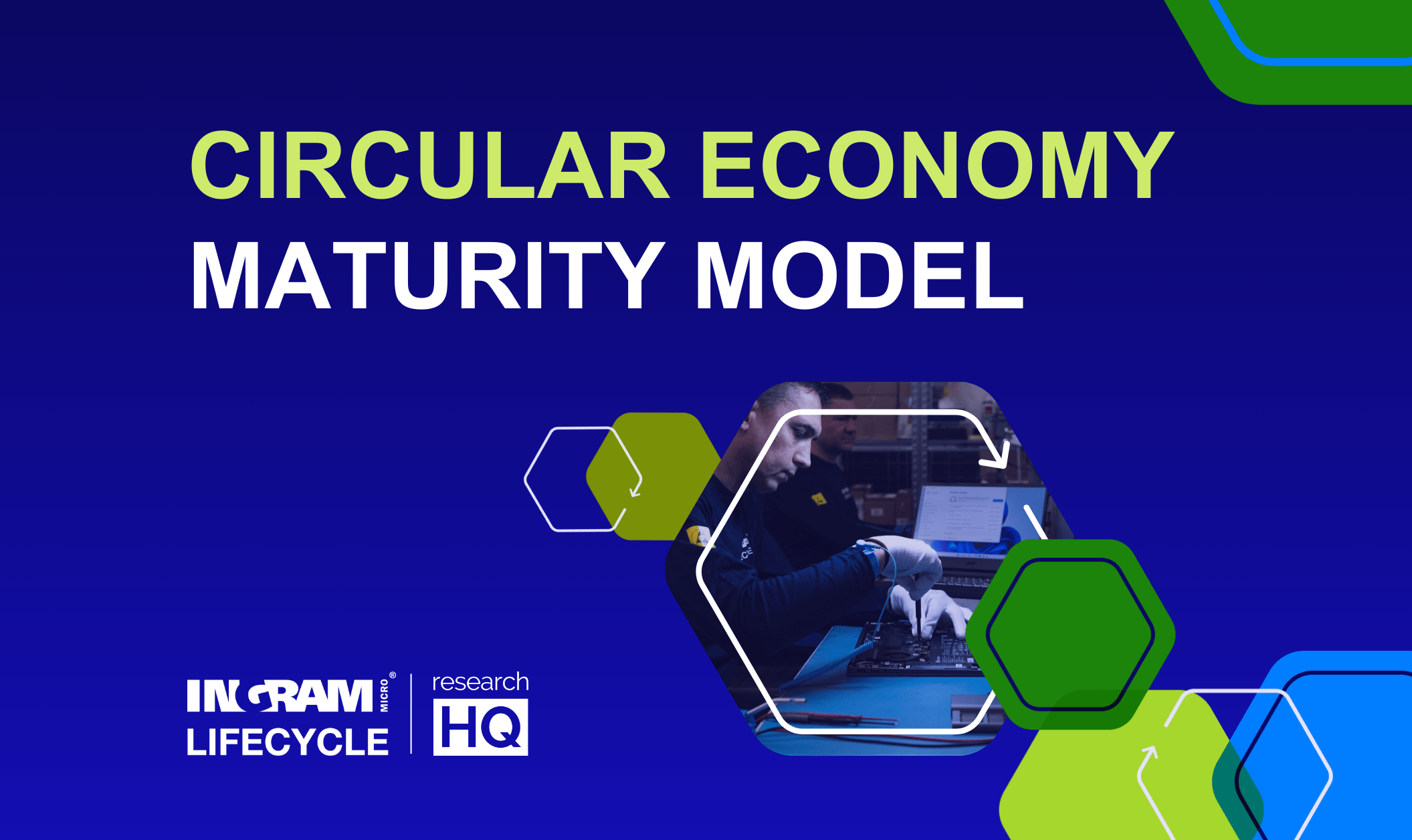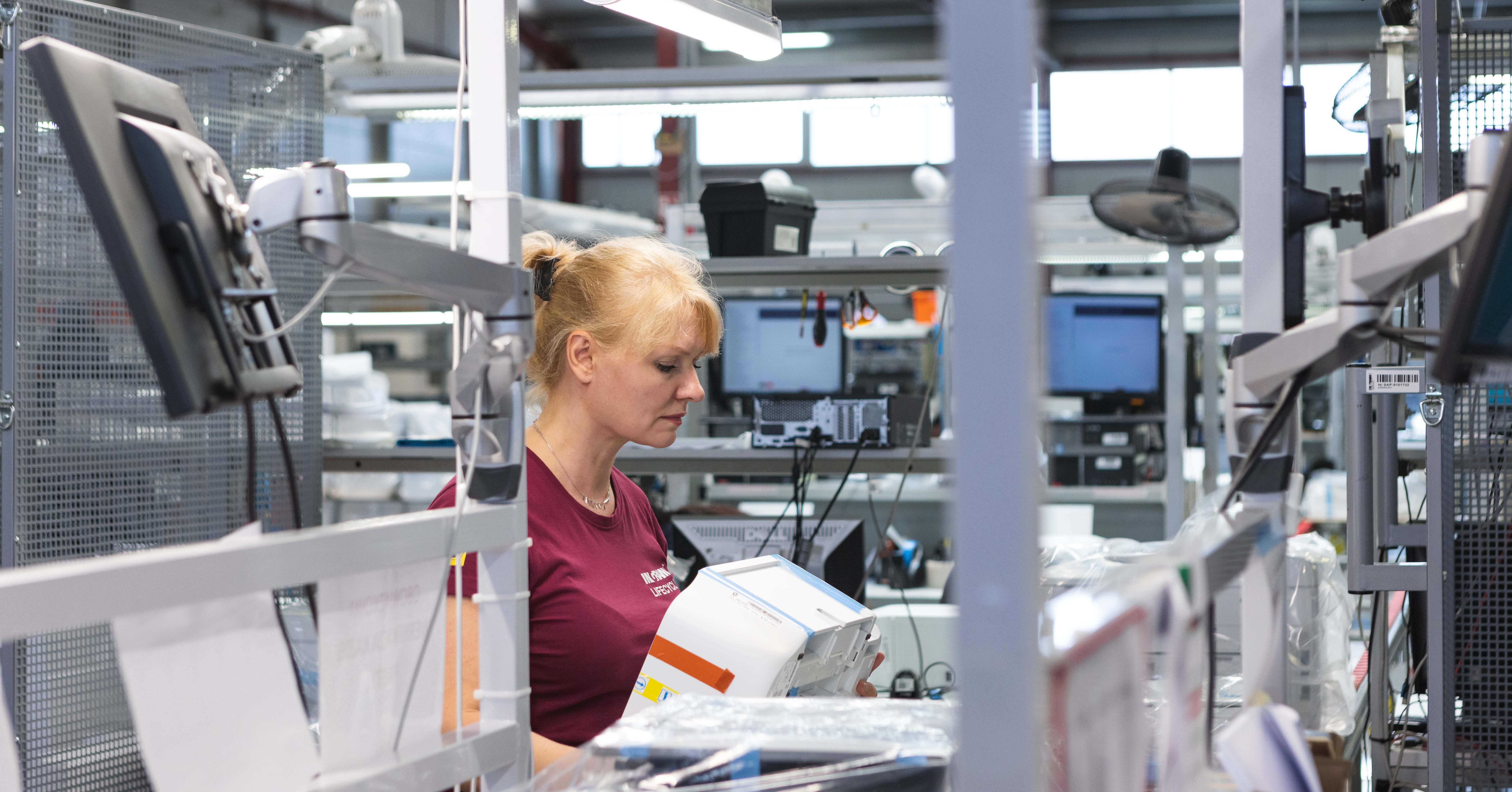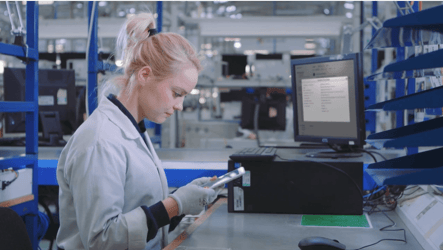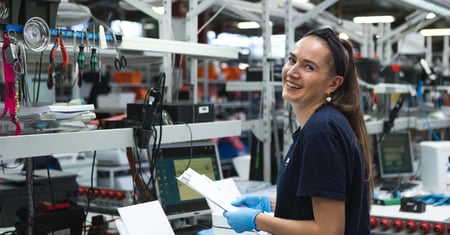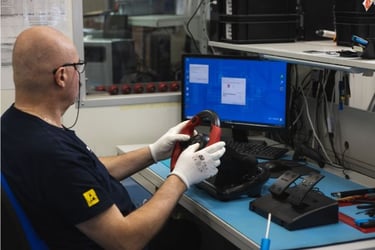Finding a service partner that aligns with your business on strategy and mission can be difficult. Getting it wrong could lead to ineffective projects that are expensive and damage your reputation.
Ingram Micro Lifecycle are a third-party logistics provider with expertise in returns management, repair and refurbishment, and recommerce programs. Our mission is to enable a circular economy for our customers through lifecycle extension of their technology. We ensure our customer’s technology ownership is sustainable.
In the article below, we discuss four key areas that you should consider when looking for a partner in returns management, recovery, or recommerce.
Criteria for Selection
There are four key areas to judge your potential partner against. These indicators should help you form an opinion as to whether the partner will be a good fit for your business. Researching these will also highlight industry opinion towards them, performance, and capabilities.
1. Industry Expertise
The technology market is very fast-paced. Products are constantly evolving, putting high pressure on partners to remain agile and swiftly develop solutions that support the ever-changing products. Not only that, but the diversity and range of products is vast. There is no one-size-fits-all solution. What applies to one manufacturer or to one model won’t necessarily lend itself to another manufacturer or a different model.
Some solutions and automation can be repeatable and scalable, but not all. The partner must have industry insight and product knowledge to understand where broad application is suitable and where it isn’t.
Partners should seek to deliver market-leading solutions which means striving for continuous improvement and innovation to provide competitive services. They should provide ample opportunities for their aftersales technology to drive improvement for their customers in terms of product development and manufacturing supply chain.
As demand for products is high, unforeseen circumstances can arise that cause issues within the supply chain. Although it’s rare, the landscape can change overnight, so the partner must be able to mitigate issues rapidly to ensure continuous supply and limit disruption. They should prepare contingency plans with back-up options in case of Plan A failure.
2. Technological Capabilities
Technological capabilities enable the research and development of automated, repeatable solutions to improve quality and efficiencies, as well as process whatever volume of product the customer needs. These advances should also work more sustainably, minimizing product waste, and reducing CO2 emissions.
The partner must be able to support and sustain customer growth and also accommodate lower product volumes, should the need arise. This is important for scalable operations, to cover both people and space, and is particularly pertinent for product flow impacted by seasonality.
Speed is an important factor in reverse logistics, more so if following recommerce processes. Depreciation is a risk to the product – the longer the processing takes, the more the potential value recovery can drop. Rapid processing of products ensures maximum value retention, especially important to recover repair and refurbishing costs.
The chances of achieving First Time Fix (FTF) are increased when implementing better technologies - a necessity when recovering value. The more you process a product to get the best grade, the more your costs accumulate. It’s imperative to get high yields successful through quality assurance checks the first time so processes aren’t repeated.
3. Sustainability Practices
With the increasing volume of electrical products in circulation, consumers are becoming more educated on the impacts this has and therefore will look to manufacturers and suppliers to enable sustainable disposition practices.
By 2022, the global population produced an estimated 62 billion kg of e-waste.
As demand for technology increases, and the innovation behind it, so too will the carbon footprint associated with its creation. Every part of the supply chain needs to consider how they will combat this and form value propositions and business objectives that take this into account.
Businesses should seek suppliers with clear sustainability objectives and outputs that demonstrate improved performance. Third-party logistics and reverse logistics partners should be constantly seeking the betterment of solutions that lower the carbon footprint and waste of its customers and their users.
4. Track Record and Client Testimonials
Typically, it may be difficult to ascertain who are the customers of the partner to obtain peer reviews. As this is information not usually in the public domain, it’s important to seek out and research whatever information may be available.
The reputation of the partner you select is important. Perhaps there are reviews or testimonials that are accessible. Look at who seems to have the biggest customer base. A contract renewal is a sign of trust in the established relationship and a sign of success. See who your peers or network are partnering with. Ask your contacts for information about who they would or would not recommend, and what experience they have with the potential partner.
News articles or press releases can often indicate partnerships if not outright declaring them. These may give a good commentary on what others are saying, particularly around the general industry sentiment of the supplier.
Social media and reviews can be a good starting point to ascertain the causes the supplier advocates and the services they offer. These profiles are not only a source for how the supplier presents themselves but also how their employees and customers interact with them.
Customer advocacy content and case studies are another good source of information that demonstrates tangible benefits that the provider has offered to its customers. These help you get a feel for if the same could be applied to your own business goals.
Establish how long the potential partner has been in business and what acquisitions or investments they’ve received. Check how long they’ve been providing the services that are suitable for your own business. Those serving for longer periods may typically have a stronger proposition in place that evolved over time and has been refined.
Certifications and accreditations are a sign of manufacturer trust and compliance with industry standards. To achieve one of these, facilities are audited to specific criteria that ensure processes are completed to a high standard. A supplier with little to no certifications or accreditations may show immaturity of business operations, or perhaps something else about how they conduct their processes.
Start your returns management, recovery, and recommerce journey
Consider the information available to you detailing industry expertise, technological capabilities, sustainability practices, and peer referrals of a potential partner. These will indicate the effectiveness and value of the partner you’re considering. Finding a suitable partner that aligns with your business objectives is crucial for success.
Ingram Micro Lifecycle supports customers around the globe to deliver sustainable reverse logistics programs. Our experienced technicians and technical know-how ensure that we can process product returns fast and turn these around for re-use or resale to recover maximum value.
Reach out to our team today to discuss how our solutions can be tailored to meet your specific business needs.



